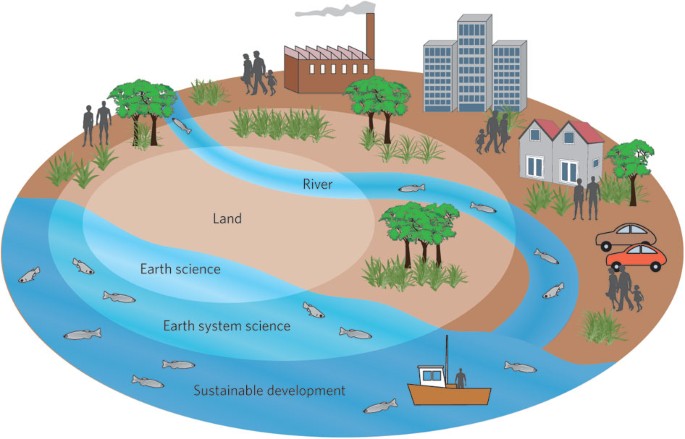
According to the Merriam-Webster dictionary, Science can be described as knowledge or a system of knowledge concerned with the physical world and its phenomena. As the result of technological advancement, the demand for scientists in several industries has grown rapidly in the past years. Science itself is a broad area of study that contains numerous branches and specialties. Therefore, students may choose from a wider range of college degrees in a variety of fields. However, how do you know which science path is the right one for you? Here, we’re going to look at 3 main categories of science and its related university majors:
- Physical Science
- Life Science
- Earth Science
Physical Science

In short, physical science revolves around studying non-living materials or systems, including its behavior, interactions, and motions through space and time. Physical science can be breakdown further into different types. Let’s look at two of them.
Physics
Simply put, physics is the study of matter and energy. It is a prominent field of science that studies nature and everything in physical existence – from subatomic to the whole universe. Physics is the core of many inventions that had a huge influence on our everyday life. Additionally, physics is also one of the most popular majors among college students who love science. If you’re one of the people who loves to dig in more about physics, there are certainly infinite career paths that you can take afterward:
- Research Associate
- Education (teacher/professor)
- Lab technician
- Data analyst
- Scientist
- Project manager
Chemistry
Chemistry, on the other hand, is the study of all chemical matter. It focuses on the structure and composition of compounds and elements, as well as understanding the properties and behaviors when interacting with other substances. Chemistry major students should expect to spend lots of time in the lab, where they will learn data analysis, written communication, and other skills. Choosing chemistry as your university major can leads you to unlimited career fields. Here are some of the examples:
- Chemical engineer
- Forensic science
- Pharmacologist
- Toxicologist
- Management consultant
As both physics and chemistry usually fall under the same university program albeit with different majors or specializations, here are some university recommendations for you:
#1 Australia National University
Rank | 27 (Worldwide) & 1 (Australia) |
Course Name / Programme name |
|
Intake | February, July |
Course duration | 3 years |
Fee |
#2 University of Sydney
Rank | 38 (Worldwide) & 3 (Australia) |
Course Name / Programme name |
|
Intake | February, August |
Course duration | 3 years |
Fee |
#3 University of Adelaide
Rank | 108 (Worldwide) & 8 (Australia) |
Course Name / Programme name |
|
Intake | February, July |
Course duration | 3 years |
Fee |
For more information on programme structure, fees, entry requirements, and more, contact us now!
Life Science

Contrasting physical science, life science is the study of life and living organisms. The field of life science can help understand the world better, including humans, animals, and plants biology. We’re going to look at two of the most prominent life science branches, which are pharmacy and biomedical science
Pharmacy
When combining chemistry and health, there are constant possibilities of learning that one can gain. For pharmacy, it revolves around the study of specialized drugs as medicine. This includes understanding the correct and safe way to utilize, preserve, and provide medicine. Pharmacy has been one of the most popular majors among college students for years due to its popularity and high demand on the market. The career prospects for pharmacy graduates might include
- Pharmacist
- Clinical research associate
- Research scientist (medical)
- Drug Information Service
- Physician associate
Here are some university recommendations for you:
#1 Monash University Australia
Rank | 58 (Worldwide) & 6 (Australia) |
Course Name / Programme name |
|
Intake | February |
Course duration | Pharmacy – 4 years Pharmaceutical Science – 2 years |
Fee |
#2 Uni of Sydney
Rank | 38 (Worldwide) & 3 (Australia) |
Course Name / Programme name | Bachelor of Pharmacy (Honours) |
Intake | February |
Course duration | 5 years |
Fee |
For more information on programme structure, fees, entry requirements, and more, contact us now!
Biomedical Science
Biomedical science, or oftentimes known as biomedicine is a branch of science that focuses closely to human health. It is often a mix of biology and chemistry that are associated with healthcare improvements. When studying biomedical science, you will often be challenged with diagnosing diseases and assessing the effectiveness of certain treatments. If you’re up for a degree that can really sharpen your analytical and critical thinking skills, this degree may just be the one for you. Moreover, biomedical science graduates may result in various career options which include but are not limited to
- Microbiologist
- Forensic scientist
- Health policy
- Clinical scientist
- Biomedical Researcher
Here are some university recommendations for you:
#1 University of Melbourne
Rank | 37 (Worldwide) & 2 (Australia) |
Course Name / Programme name | Bachelor of Biomedicine (Honours) |
Intake | February, July |
Course duration | 3 years |
Fee |
#2 University of Queensland
Rank | 47 (Worldwide) & 5 (Australia) |
Course Name / Programme name | Bachelor of Biomedical Science |
Intake | February, July |
Course duration | 3 years |
Fee |
For more information on programme structure, fees, entry requirements, and more, contact us now!
Earth Science

Humans are filled with curiosity. It’s something that sparks our instinct to keep on looking for the answers to lots of things. And understanding how our world operates has been a long-standing human endeavour. Earth Science is involved with complex systems and combines different elements of science to comprehend the processes that shape our planet. Furthermore, it also studies the effects of human activities on the environment and develops approaches to preserve the earth.
Geology
When talking about earth science, some of you may associate it directly with geology. The word geology itself is a combination of 2 words in Greek, “geo” means earth and “logos” means knowledge. The name itself is quite self-explanatory; it is a study of the earth. It teaches how to examine the structure and changes that have occurred over the course of Earth’s history, as well as those that may occur in the near future. Studying geology also helps you to understand the surface that made the earth, from rocks to soils and from minerals to waters. Here are some career prospects for geology graduates:
- Geophysicist
- Environmental scientist
- Archaeologist
- Exploration geologist
- Geological Engineer
Here are some university recommendations for you:
#1 University of Western Australia
Rank | 93 (Worldwide) & 7 (Australia) |
Course Name / Programme name | Bachelor of Science (Geology) |
Intake | February, July |
Course duration | 3 years |
Fee |
#2 Curtin University
Course Name / Programme name | Bachelor of Science (Applied Geology) |
Intake | February, July |
Course duration | 3 years |
Fee |
For more information on programme structure, fees, entry requirements, and more, contact us now!
Earth Science Major
If you would like to learn more about earth’s environment in a broad and more process-based course, then taking earth science major can be your path! Earth science major will study aspects that refer to all scientific disciplines that deal with the planet Earth. It contrasts with Geology, where it’s more direct and focuses on the origin, history, and structure of the earth. The course may comprise all different Earth’s dynamic processes, which might include oceanography, hydrology, or meteorology. Earth science graduates may be looking into various career prospects which includes:
- Hydrogeologist / Meteorologist / Oceanographer
- Agronomist
- Land Planning Assistant
- Palaeontologist
- Environmental geoscientist
Here are some university recommendations for you:
#1 University of New South Wales
Rank | 43 (Worldwide) & 4 (Australia) |
Course Name / Programme name | Bachelor of Science (Earth Science) |
Intake | February, July |
Course duration | 3 years |
Fee |
#2 University of Western Australia
Rank | 93 (Worldwide) & 7 (Australia) |
Course Name / Programme name | Bachelor of Earth Sciences (Integrated Earth and Marine Sciences) |
Intake | February, July |
Course duration | 3 years |
Fee |
For more information on programme structure, fees, entry requirements, and more, contact us now!
Recommended Articles to Read

Amanda Kaffah
I am a part-time content writer, a part-time Computer Science student, and a full-time dreamer. Likes to munch some food while doing some work or watching netflix.

